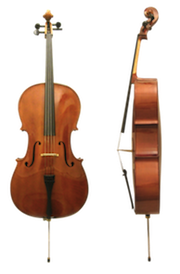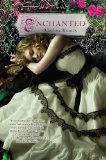Summary | Excerpt | Reviews | Beyond the book | Read-Alikes | Genres & Themes | Author Bio

Embrace possibility in this luminous novel about a girl in search of her past who discovers a secret rooftop world in Paris.
Everyone thinks that Sophie is an orphan. True, there were no other recorded female survivors from the shipwreck that left baby Sophie floating in the English Channel in a cello case, but Sophie remembers seeing her mother wave for help. Her guardian tells her it is almost impossible that her mother is still alive - but "almost impossible" means "still possible." And you should never ignore a possible.
So when the Welfare Agency writes to her guardian, threatening to send Sophie to an orphanage, she takes matters into her own hands and flees to Paris to look for her mother, starting with the only clue she has - the address of the cello maker.
Evading the French authorities, she meets Matteo and his network of rooftoppers - urchins who live in the hidden spaces above the city. Together they scour the city in a search for Sophie's mother - but can they find her before Sophie is caught and sent back to London? Or, more importantly, before she loses hope?
Phillip Pullman, author of the His Dark Materials series, calls Rooftoppers "the work of a writer with an utterly distinctive voice and a wild imagination."
Rooftoppers reads very much like two separate stories. The London section, while vital to the rest of the book, feels just a bit contrived ... In contrast, the Parisian section is magical in the way that the best fairy tales are - combining elements of the fantastic and the grittily realistic into an irresistible alchemical brew...continued
Full Review
(543 words)
This review is available to non-members for a limited time. For full access,
become a member today.
(Reviewed by Heather A Phillips).
 Cello music plays a pivotal role in Rooftoppers. The cello is a string instrument played with a bow. It has four strings tuned to perfect fifths. It is an octave lower than a viola, and an octave and a fifth lower than a violin. The name "cello" is an abbreviation of the Italian violoncello, which means "little violone".
Cello music plays a pivotal role in Rooftoppers. The cello is a string instrument played with a bow. It has four strings tuned to perfect fifths. It is an octave lower than a viola, and an octave and a fifth lower than a violin. The name "cello" is an abbreviation of the Italian violoncello, which means "little violone".
 Andrea Amati, of Cremona, Italy, is one of three people credited with the invention of the cello, and he, without question, added a 4th string to the instrument that existed at the time. His grandson, Niccolò, also a luthier (a stringed instrument maker), taught the world famous violinmaker Antonio Stradivari, who also built cellos. These original cellos were slightly larger than the modern cello. Though he ...
Andrea Amati, of Cremona, Italy, is one of three people credited with the invention of the cello, and he, without question, added a 4th string to the instrument that existed at the time. His grandson, Niccolò, also a luthier (a stringed instrument maker), taught the world famous violinmaker Antonio Stradivari, who also built cellos. These original cellos were slightly larger than the modern cello. Though he ...
This "beyond the book" feature is available to non-members for a limited time. Join today for full access.

If you liked Rooftoppers, try these:

by Alethea Kontis
Published 2013
It isn't easy being the rather overlooked and unhappy youngest sibling to sisters named for the other six days of the week. Sunday's only comfort is writing stories, although what she writes has a terrible tendency to come true...

by Colin Meloy, Carson Ellis
Published 2012
Wildwood is a spellbinding tale full of wonder, danger, and magic that juxtaposes the thrill of a secret world and modern city life.
Poetry is like fish: if it's fresh, it's good; if it's stale, it's bad; and if you're not certain, try it on the ...
Click Here to find out who said this, as well as discovering other famous literary quotes!